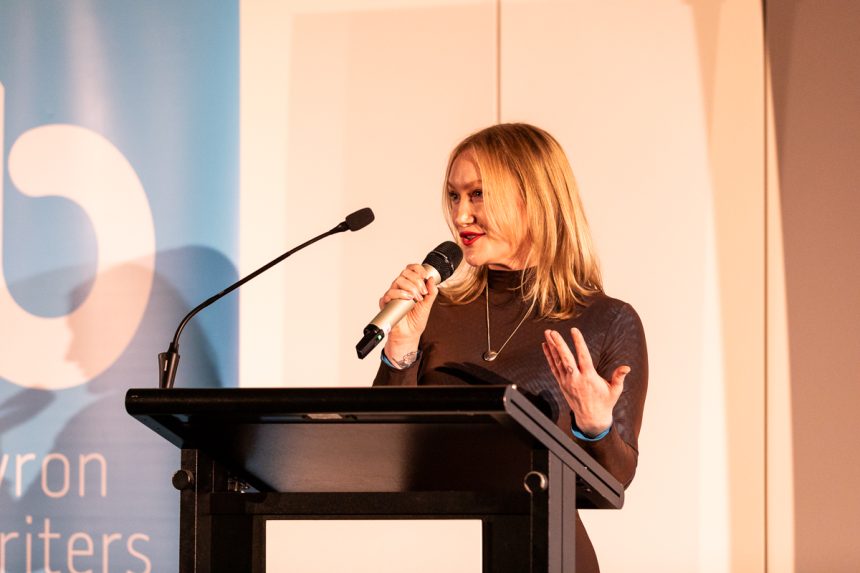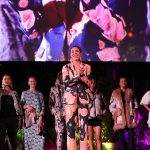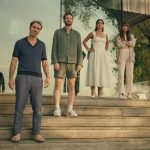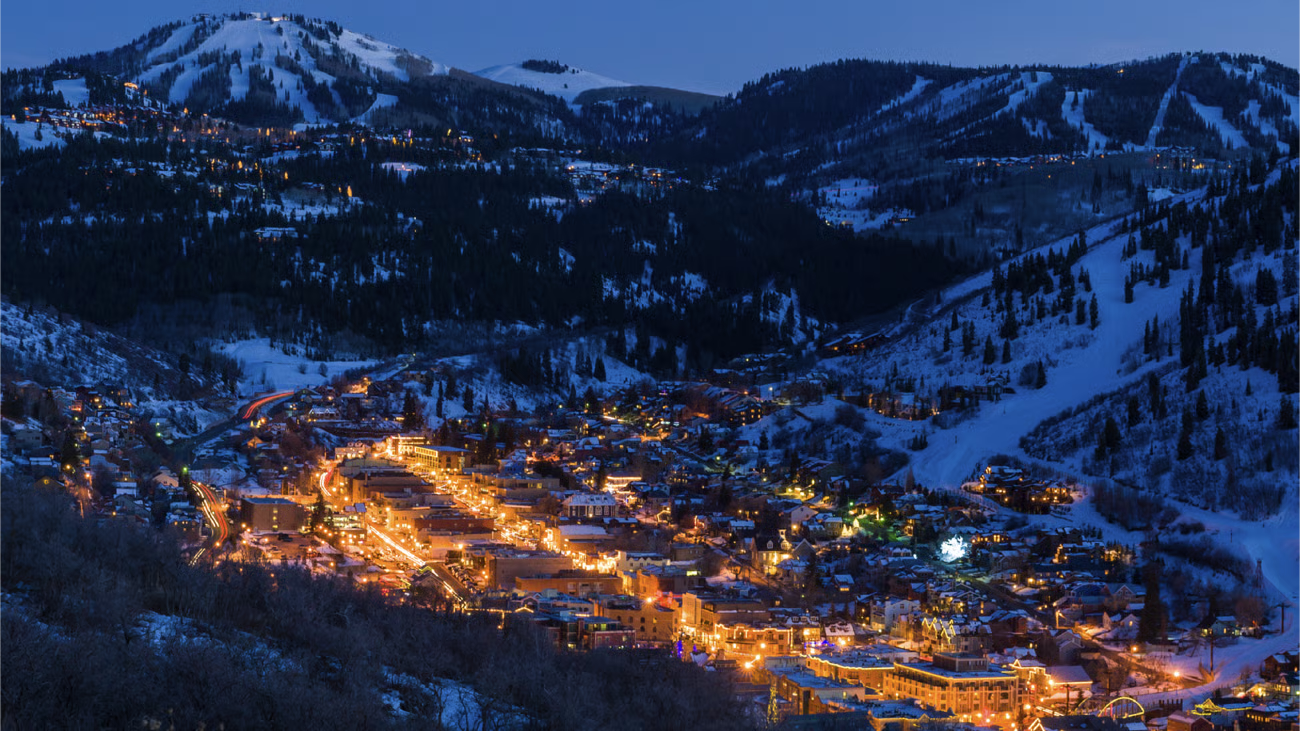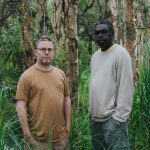Byron Writers Festival may be held in one of the most picturesque pockets of the country, but for Jessica Alice, it’s not just the whale-season backdrop that defines its magic. It’s the immersive atmosphere, the slow thinking, and the public value of storytelling.
With 6 concurrent stages set up in marquees, the festival is also the largest of the regional writers festivals, with a who’s who of international and local artists ready to inspire the story tellers in us all.
As Festival Director, Alice blends the lyricism of a poet with the pragmatism of a cultural strategist.
She is a writer and arts leader who was appointed Artistic Director of Byron Writers Festival at the beginning of 2024. Before that, Jessica was CEO of Writers SA, the peak organisation for writing and literature in South Australia, Chair of the Arts Industry Council of South Australia, and Chair of the National Young Writers Festival.
Jessica brings extensive experience with her having worked across literature, festivals, media, theatre and visual arts. She was also formerly Program Manager of Melbourne Writers Festival, Co-Director of the National Young Writers’ Festival in New South Wales, and a member of the executive leadership team at Regional Arts Victoria.
In our completely Irresistible interview we chatted passion, purpose and poetry, and even snagged Jessica’s favourite tunes and some of her literary top picks that will be appearing at Byron this year.
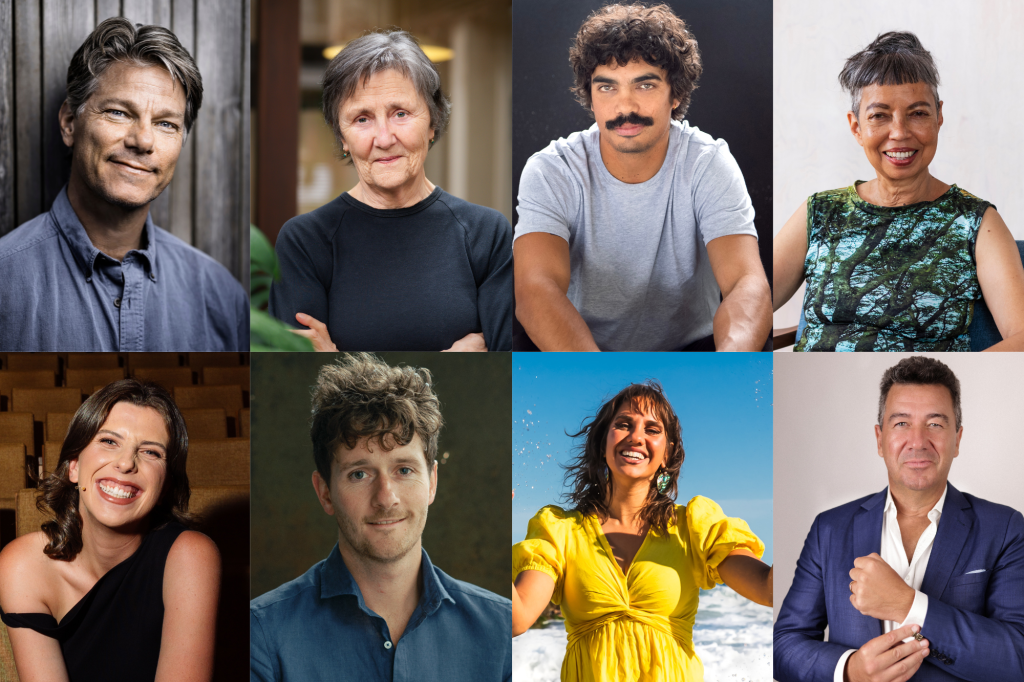
Jessica, let’s start with the obvious—how did you come to be involved with Byron Writers Festival?
Jessica Alice: Well, everybody is aware of the incredible reputation of Byron Writers Festival. I’m originally from Melbourne, and I’ve worked in literary organisations across the country—in Newcastle, in Adelaide, and back in Melbourne. I hadn’t attended the festival as a writer, but I’d always heard the same thing: “Byron is the one. It’s the best. It’s where writers have the most fun.”
So when the opportunity came up, it felt like a very natural fit. Byron is deeply engaged with the things I care about—creative practice, poetry, the environment, and advocacy. Since stepping into the role, it’s been wonderful. The festival is unique in Australia. It’s large—six stages running concurrently—but it’s also deeply intimate. Because writers and audiences are immersed together over the whole weekend, real connections are formed. It’s a space for big thinking and deep contemplation, in a stunning natural setting.
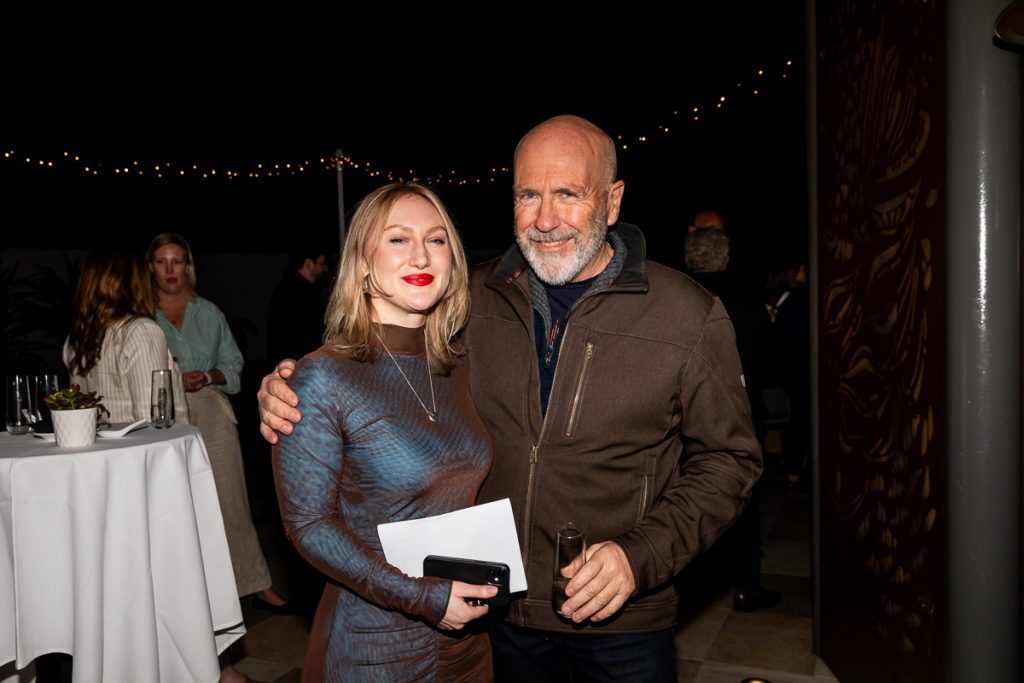
You describe it as immersive, almost like a retreat. How do you begin building a program that reflects that?
It’s definitely a weaving process. At the end of each year, I spend time in Sydney and Melbourne—where most of the publishers are based—meeting with them to learn what’s being published over the next 12 months. That gives me a broad survey of what’s coming up, and a lot of reading to do!
But programming isn’t just about the books. It’s also about being attuned to the cultural and political moment: What are the big issues? Who are the voices cutting through? Who are the writers doing important work but perhaps aren’t widely known yet? There’s also an element of personal passion—I’m always thinking about how we can centre the environment, creative practice, and advocacy. As all these elements come together, a theme tends to emerge organically. Last year, my first festival, it was From the Ground Up. This year it’s Passion and Purpose, which really reflects the kind of writers and thinkers we’re bringing in—people with a deep sense of social commitment and public voice
Is there a particular session or speaker that captures the essence of that theme this year?
There are a few! One that I’m incredibly excited about is a conversation between Barry Jones and Kerry O’Brien. Kerry has wanted to do this interview with Barry for a long time, and it’s a rare opportunity to hear from two people with immense wisdom talk about culture, change, and values.
Another highlight is a panel called Who Gets to Be an Artist? featuring Anita Heiss, Vincent Fantauzzo and Gail Jones. Each of them brings a very different perspective. Anita has redefined the landscape for Aboriginal voices in commercial fiction. Gail came from a deeply working-class background and was actively discouraged from pursuing the arts. And Vincent will speak about navigating the art world while being neurodivergent. The point of that session is to highlight that everyone deserves a life in the arts. And that art is not a luxury—it’s a human right. These kinds of conversations open the door for advocacy in everyday ways.
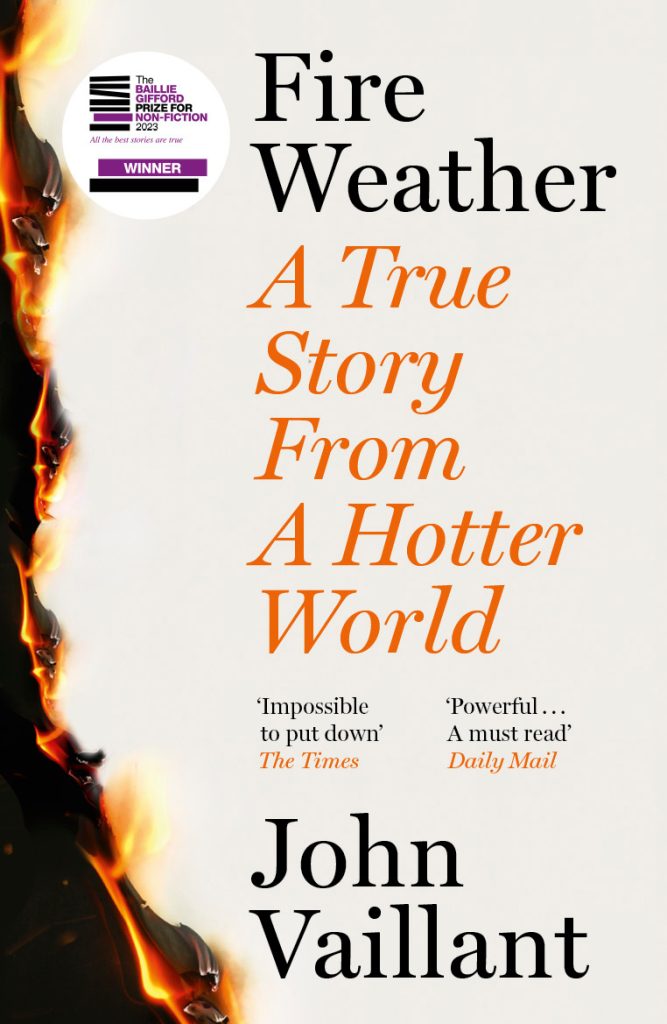
In May 2016, a Canadian oil town was overrun by wildfire, turning entire neighbourhoods into firebombs and driving 90,000 people from their homes.
Through the gripping story of this apocalyptic conflagration, John Vaillant explores our relationship with fire, an energy source that has been our partner in evolution for hundreds of millennia, shaping our culture and civilization. Now, in our age of intensifying climate change, its destructive power has been unleashed in ways previously unimaginable.
Fire Weather is an astounding account of this century’s most intense urban fire, and an urgent examination of humanity’s future in an ever-hotter, more flammable world.
What’s the atmosphere of the festival like? Is it as relaxed as the Byron postcode suggests?
It’s buzzy. You feel the energy of the conversations fizzing out of the tents after every session. There’s something really special about the way it all unfolds outdoors. The marquees are built into this beautiful coastal landscape, and audiences wander from panel to panel under the sun, often barefoot, often with a coffee in hand.
Half of our audience comes from outside the region—interstate or from other parts of NSW—which adds this incredible richness. But we also have a strong local scene of young creatives, artists, and entrepreneurs who are drawn to Byron for its creative energy.
We always say it’s like a music festival, but with books. There’s a pop-up bookstore, evening salons, impromptu conversations at the bar. And yes—it’s whale season, so people often head to the Cape after a session and just sit with a thermos watching the ocean.
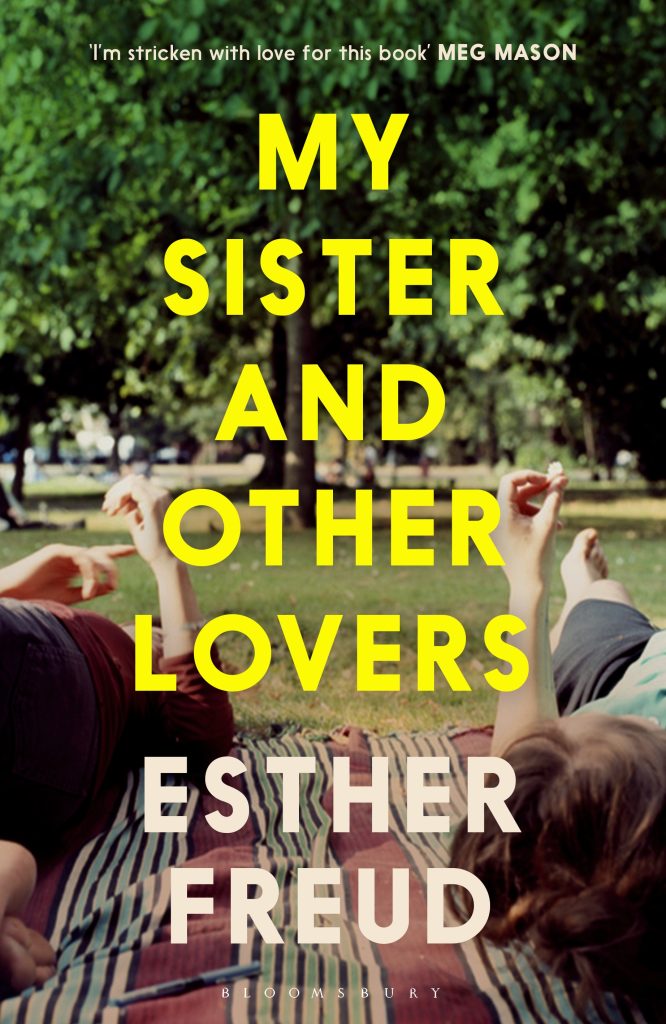
For as long as Lucy can remember, she’s been caught between loyalty to her rootless, idealistic mother and devotion to her fierce and exacting sister, Bea. From her unsettled childhood to her turbulent teenage years, she’s been forced to make a choice.
But as the sisters come of age and embark on their own experiments – in love, drugs, work, motherhood – they find their lives, and their relationships, increasingly in turmoil.
Can the love they have for each other transcend the damage of the past? Or is the past too dangerous to examine?
Do you feel hopeful about where the cultural conversation in Australia is heading?
I do. We’re in a really significant moment. For one, we have a national cultural policy again—for the first time in over a decade. That’s not nothing. The federal government is investing in arts and culture, and Writing Australia has just launched, which feels like a new chapter for literature.
That said, the sector has endured long-term underfunding. The fact that we still have such a vibrant literary culture is testament to the dedication of writers, publishers, readers, and festivals. Byron Writers Festival is supported by an incredible patron circle, donors, and sponsors. Their belief in our work makes the festival sustainable and impactful.
So yes—I feel hopeful. But it’s hope with a caveat: we have to keep fighting for the value of public culture. It doesn’t happen by accident.
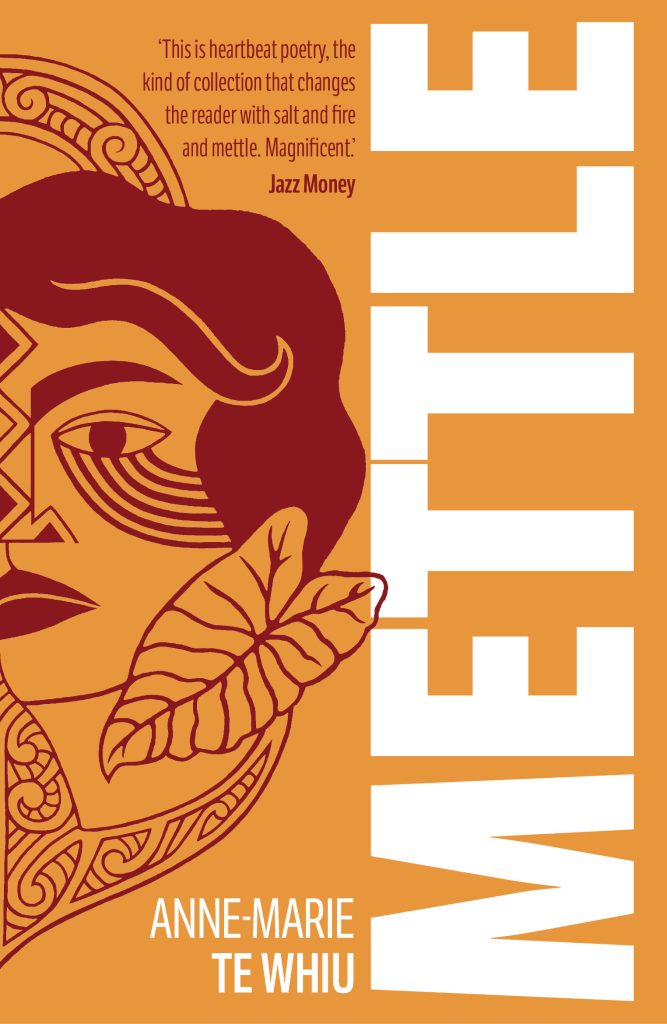
The poetic visions of Mettle echo through past and present as Anne-Marie Te Whiu draws on stories from a lifetime of listening and learning about her whakapapa (Māori lineage).
This exceptional collection resounds with strength – a mettle that ripples through Te Whiu’s own life and that of her ancestral family. Her graceful poems are a lens through which to look ‘now’ straight in the face, without shame or fear, and to acknowledge that while trauma is transmitted generationally, so too are the gifts of resilience and fortitude.
What does success look like for you? How will you know if this year’s festival has worked?
It’s the feeling on the ground. It’s when both the writers and the audience are energised, engaged, and connected. I love seeing a session end and strangers start talking to each other, ideas still buzzing in the air. It’s also seeing the writers come away feeling heard. Many of them spend years working on books in isolation—without knowing how their work will land. So when they meet their readers, when they feel that feedback in real time, it’s incredibly validating. That’s the kind of connection that makes a festival truly meaningful.
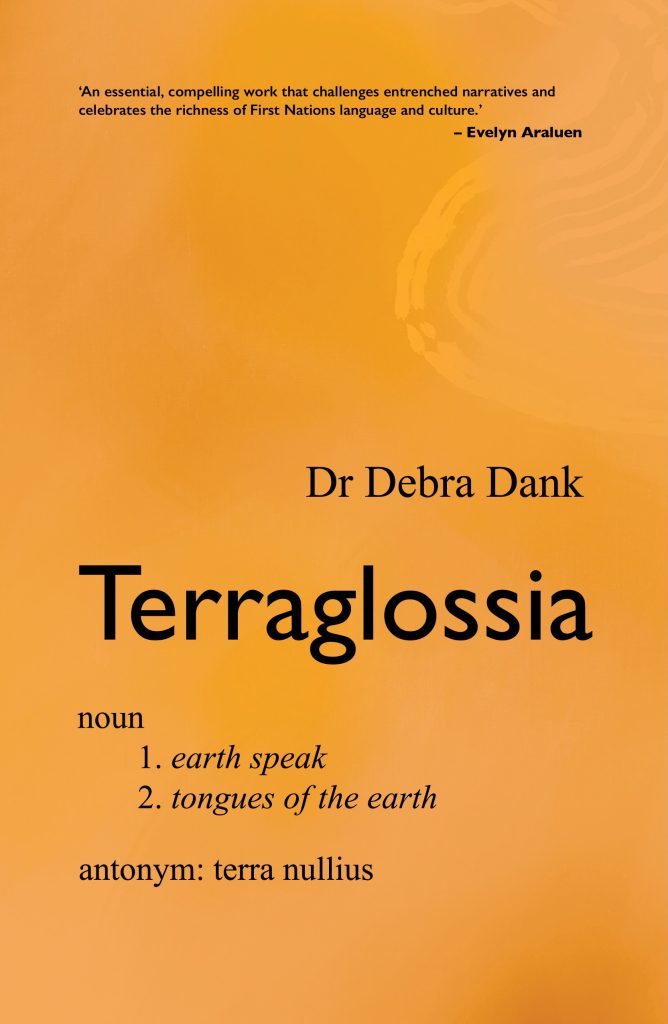
You won’t find ‘terraglossia’ on Google, or in a dictionary. It’s a word coined by acclaimed academic and award-winning author Dr Debra Dank in response to the first Europeans’ description of Australia as ‘terra nullius’ – no one’s land. These new arrivals, with their language born far away, silenced and made invisible the more-than-ancient civilisations that have lived in and with this place for many thousands of years.
Terraglossia is a powerful and moving reply to a false claiming, to the need for understanding that only through responsible living with the earth, not just what can be articulated in a language that arrived 250 years ago, will all the voices of Australia truly be heard.
Writing is such an internal process. Do you think festivals offer writers a chance to come out of that solitude?
Completely. Most of a writer’s life is invisible—just them and a screen or a notebook. Festivals are one of the few places where the curtain gets lifted.
It’s a chance to celebrate that labour, to say: we see you. Come have fun. Come connect. And hopefully come away feeling creatively nourished and professionally supported. For many writers, these events are where collaborations begin, friendships are forged, and the next book starts to germinate.
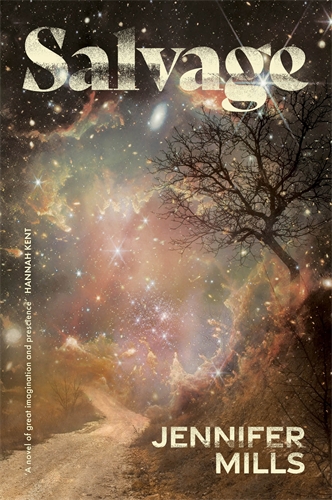
Salvage is a gripping novel of literary speculative fiction that asks: what does it mean to care for each other, after the end of the world?
For those who’ve never been—what’s your pitch? Why should someone come to Byron Writers Festival?
Because it’s unlike anything else. You buy your pass and then you’re free to explore—six stages, dozens of sessions, all outdoors. You’re surrounded by ocean and ideas, nature and language. If you’re interested in climate activism, in storytelling, in culture, in change—there’s something for you. We curate the program to speak to the moment, but also to inspire action and imagination.
And finally, your poetry—do you have a collection coming?
I’m working on it. I’ve published pieces in anthologies and journals over the years, but the manuscript is still in progress. Like most things worth doing, it’s slow. But being surrounded by so many extraordinary writers every day—it’s deeply motivating. And I think festivals like this remind all of us that we are part of a creative ecosystem. The readers, the writers, the booksellers, the thinkers—we’re all in it together.
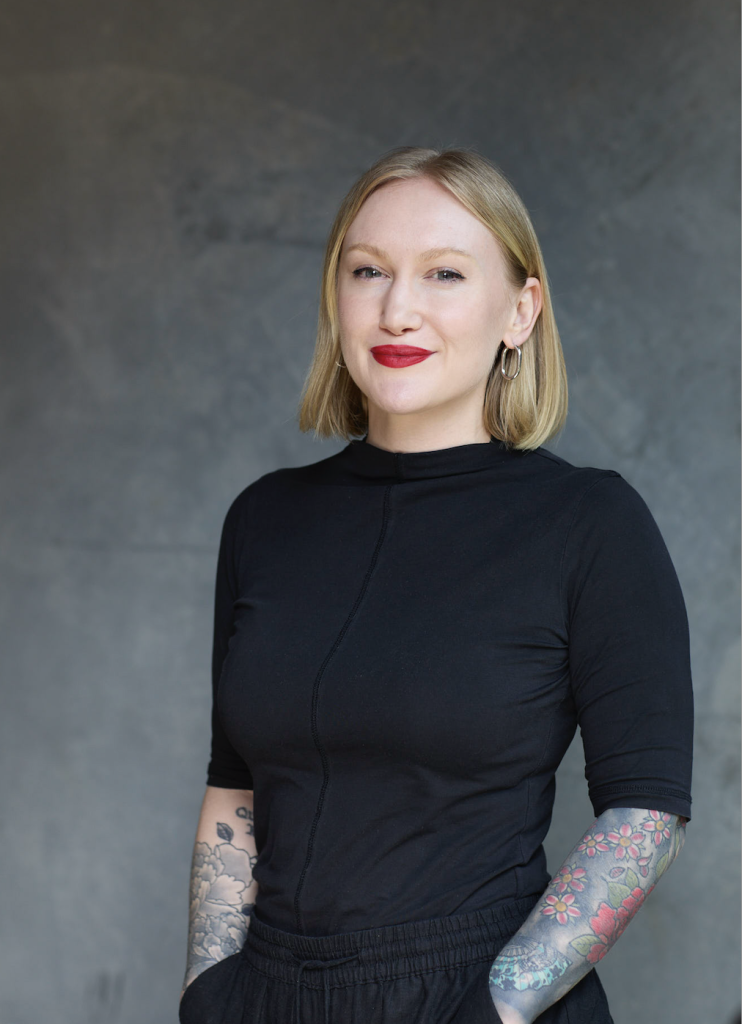
Byron Writers Festival runs from 8–10 August 2025.




